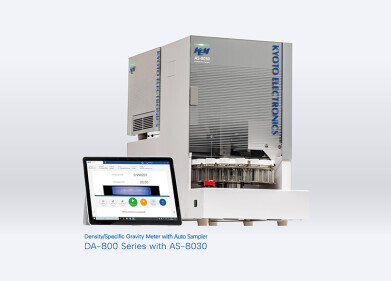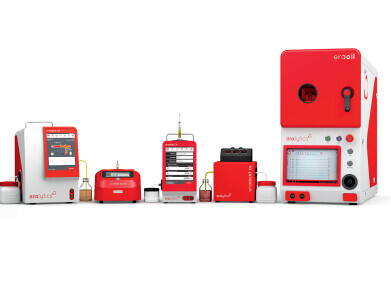Analytical Instrumentation
Is Petrol Next to Go After London's Diesel Scrappage?
Mar 13 2017
Just days into 2017, a London air pollution station reported that it had already hit its annual NO2 emissions limit. It’s no secret that the capital is plagued by dirty air, and now the Islington Council has unveiled new plans to eliminate both diesel and petrol cars from the borough.
In a recent statement, Islington representatives stressed a goal of becoming one of London’s cleanest boroughs. Over the next 12 months the council plans to increase the number of electric charge stations from 10 to more than 100, in the hope that it will encourage Londoners to embrace electric vehicles.
Islington woos motorists with electric friendly facilities
It also plans to roll out a handful of next generation refuelling systems, including rapid charge lampposts which can replenish a battery in as little as three hours, as well as ultra-fast units that can hit 80% charge in just 30 minutes.
“Tackling poor air quality and diesel emissions are two of the biggest issues – not only for residents but for Islington and London as a whole,” comments Cllr Claudia Webbe, executive member for environment and transport. “This is not a trial – we are taking the lead and rolling out this cutting-edge technology in our streets, and will continue to explore every avenue to help improve our air."
The schemes are all part of the council’s plan to encourage drivers to replace fuel hungry vehicles with efficient, eco-friendly electric cars.
"We know that some people need to drive in London, so the easier we make it for them to ditch their petrol or diesel vehicles in favour of electric ones, the better” adds Webbe.
London’s ‘clean air’ quest
Islington isn’t the only borough advocating for clean air, with the Mayor of London's Air Quality Strategy paving the way for a cleaner capital. By 2018 the city’s iconic black cabs will start to switch to electric engines, while October will see diesel drivers in London slapped with an additional £10 toxicity charge, in addition to the existing £11.50 congestion levy. Under a new scheme, it could also cost diesel drivers 50% more to park in Central London. The plans and penalties may seem extreme, but given the fact that toxic pollutants like nitrogen dioxide contribute to around 12,000 premature deaths in the UK every year, they could save lives.
So is petrol on its way out? If the actions of the Islington Council are anything to go by, electric cars could overtake their petrol counterparts in a matter of years.
With petrol and diesel on their way out, a surplus of fossil fuels could see the petrochemical industry thrive. For more information on the latest technologies fronting the industry, ‘Total Hydrocarbon Analysers Make Elemental Analysis of Petrochemicals As Easy As 1-2-3’ is a must read article.
Digital Edition
PIN 25.1 Feb/March
March 2024
In This Edition Safety - The technology behind the ION Science Tiger XT - Safety with ammonia and LOHCs as hydrogen carriers Analytical Instrumentation - Discussion on new tribology te...
View all digital editions
Events
Apr 28 2024 Montreal, Quebec, Canada
Apr 30 2024 Birmingham, UK
May 03 2024 Seoul, South Korea
May 05 2024 Seville, Spain
May 06 2024 Riyadh, Saudi Arabia


















